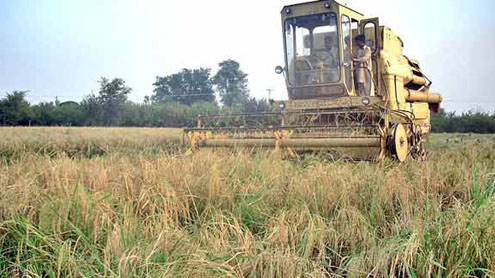A participatory agricultural extension approach for sustainable agricultural production.
Author Details: Tahir Munir Butt, PhD Scholar, College of Humanities and Development (COHD), China Agriculture, University, Beijing-China.
The most important change of current era is to develop sustainable agriculture extension approaches beyond technical knowledge. Like other fields in agriculture, education and training play an important role as the enhances the knowledge level of an individual. These two elements form the basic tools to improve rural economic growth on sustained basis through participatory technology transfer. Through education and training of improved farming technology farmers can contribute better in the national economy of a country.
In Pakistan, so many agricultural extension approaches were used during the last 60 years, unfortunately all of them could not achieve their desired goals and there was least participation of farmers in decision making and feedback mechanism process. Moreover, in all of the previous approaches/systems there is no element of training of farmers regarding use of pesticides/insecticides/weedicides and environmental pollution. Among participatory and environment friendly extension approaches farmer field school (FFS) approach is the single approach of agriculture extension based on principles of adult education and training of farmers and promotes group learning from field observations and experimentation.
Originally the FFS approach was developed in Asia with the goal of empowering resource poor farmers. This is basically a school without walls comprising of a group of (20-35) farmers with adjacent fields who meet once a week for half a day throughout the crop growing season. It is a school where: participatory training techniques are used to achieve learning objectives. The FFS approach has one of the most inspiring records in training and educating two million farmers during the last 15 years and majority of them belongs to Asia. This approach educates farmers about general crop health, water management, weather, insect/pest/weed management, and their control through natural enemies (beneficial insects).
This Method has the potential to empower those farmers who have limited resources and cannot reach out to policy makers. Farmer field schools have shown outstanding impacts in terms of reducing use of pesticides for environmental and health benefits. This approach plays an effective role in capacity building of farmers and helps in developing their own decision about crop management through environment friendly techniques. Farmers who participated in the Farmer Field School training retained their knowledge and applied the same to get fruitful results.










